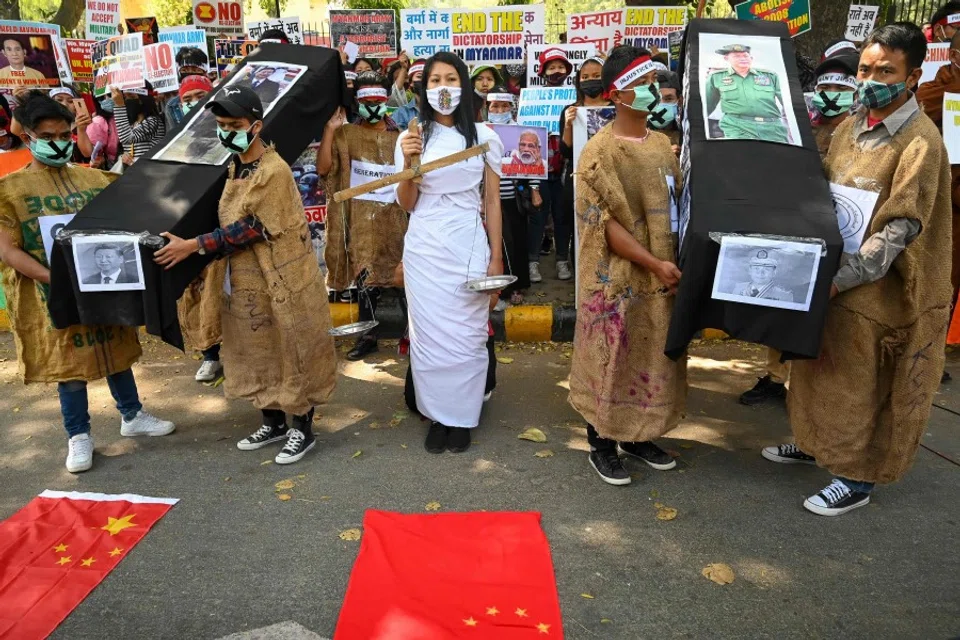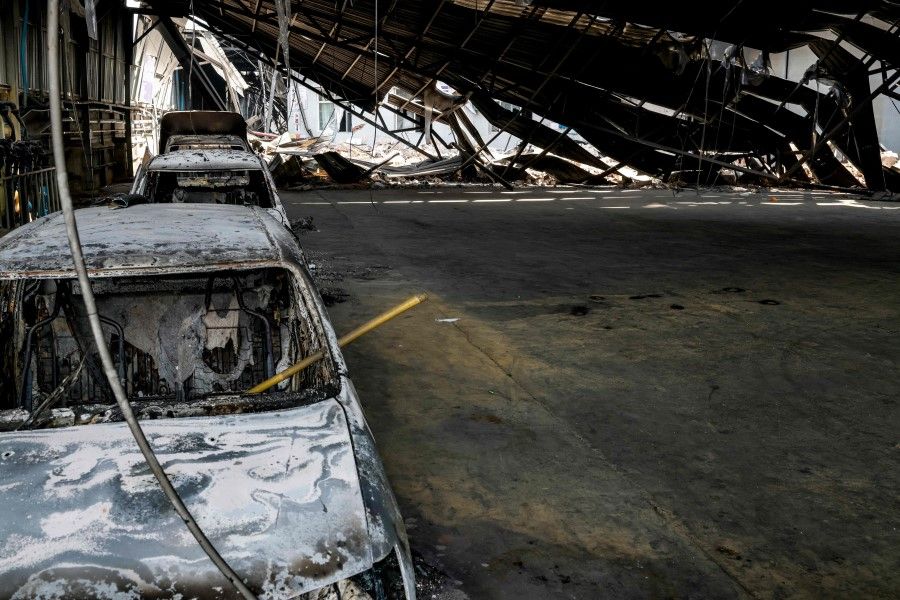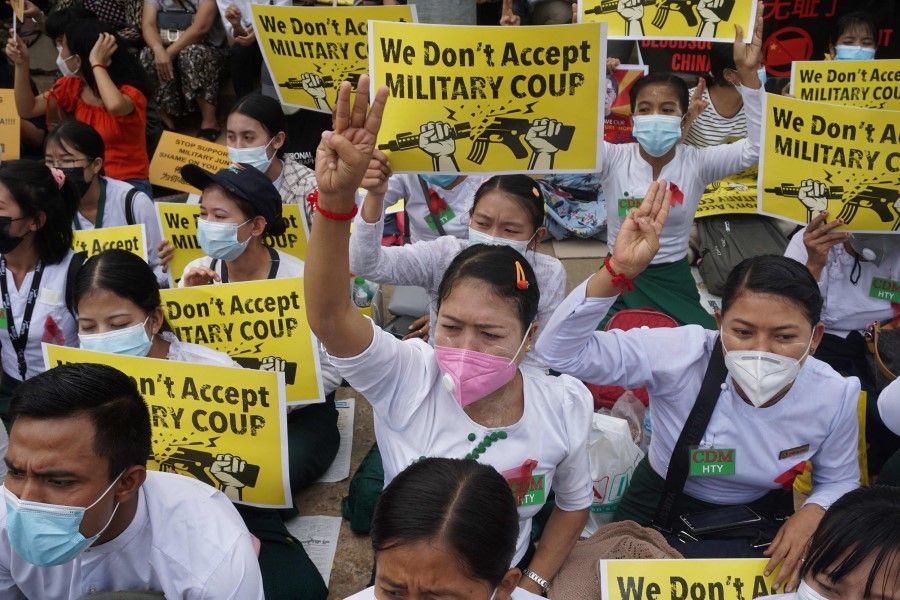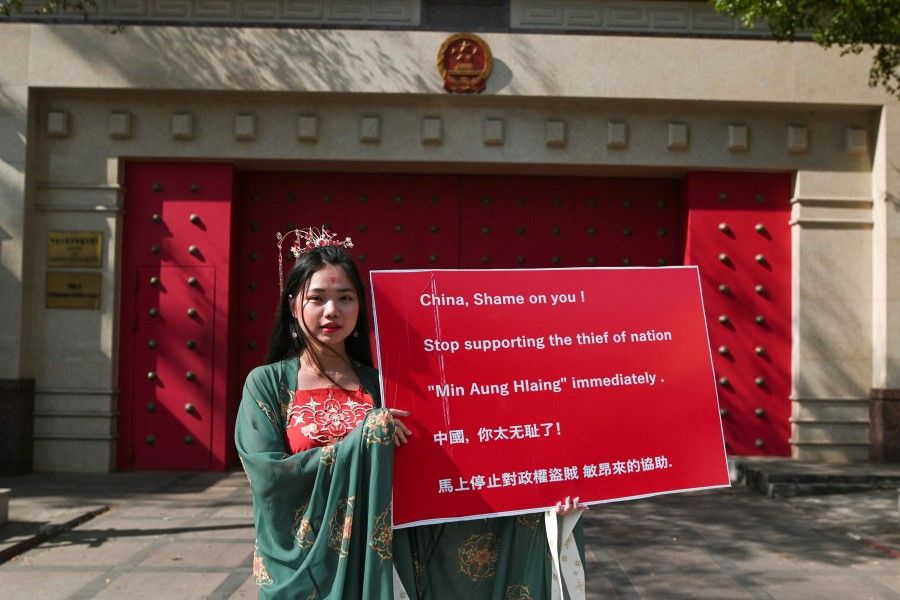Why the Chinese are confused by 'ungrateful' anti-China sentiments in Myanmar

On 14 March, attacks were carried out on Chinese companies in Hlaingthaya township, an industrial area in Yangon, Myanmar. By noon of 15 March, 32 Chinese factories were damaged, with two Chinese workers injured and at least 240 million RMB (about S$50 million) worth of property lost.
Myanmar shares a 2,200-kilometre border with China, and the latter describes its relationship with Myanmar as a "comprehensive strategic cooperative partnership". Information from Myanmar's Ministry of Investment and Foreign Economic Relations shows that in April 2019, China and Myanmar signed an agreement for China to provide a grant of 1 billion RMB for socioeconomic projects in Myanmar; and in January 2020, both countries reached a consensus for China to provide 4 billion RMB in aid to Myanmar over the following three years. But even so, anti-China incidents are happening right on their doorstep. Many Chinese find this unthinkable!
Befuddled by 'ingratitude'
At a regular press conference on 15 March, Chinese foreign ministry spokesperson Zhao Lijian said: "China and Myanmar are 'pauk-phaw' brothers connected by the same mountains and rivers, and are a community with a shared future through thick and thin. China's friendship policy toward Myanmar is for all the people of Myanmar. And developing friendship with China has also been a consensus across all sectors of Myanmar." This comment by China's foreign ministry got some Chinese more puzzled; if the relationship between Myanmar and China is so good and friendship with China is a consensus in Myanmar, why were there such horrid attacks on Chinese companies?
The "image mismatch" exhibited by some countries has led Chinese to think of one word: ungrateful.

Indeed, in the face of the upbeat official narrative at home and the painful losses overseas, the Chinese have reason to be confused at what appears to be a contradictory situation. Objectively, in recent years, such confusion is not new for the Chinese. On the one hand, these are countries that China goes out of its way to help and which the Chinese authorities label as friendly, and on the other hand, they are also countries that harm the interests of China and its people. The "image mismatch" exhibited by some countries has led Chinese to think of one word: ungrateful. And in fact, it is not uncommon to see descriptions of other countries as "ungrateful" on China's internet.
What are the problems reflected here? One is that some Chinese have a misconception about how international relations is conducted. Second, there is a problem with the Chinese authorities' understanding or building of some bilateral relations.
A question of interest, not gratitude
What is the core factor in driving international relations? Some people in China believe it is amity - if two countries are friendly, bilateral relations would naturally be easy. This is wrong. Amity is the result of developing bilateral relations well, and not a core driver. The core driver of international relations is in fact mutual benefit. Countries that need each other are most likely to develop close bilateral ties.
Even now, some people in China are still sore over the Sino-Albanian split that happened decades ago, saying that Albania "betrayed" China and seeing it as the epitome of "ingratitude". In fact, this attitude would not be positively received by the international community. A more generally accepted view is that bilateral relations are usually based on the interests and needs of two willing parties. When two countries develop relations, even if these relations are more beneficial to Country B, Country A cannot have the mindset of doing them a favour, even if Country B expresses gratitude. On a theoretical level, in reading popular Western works on international relations, one seldom sees references to a "diplomacy of gratitude".

For most countries, China developing relations with them in itself shows that China has relevant interests. Apart from that, if some Chinese expect the other side to be grateful for such bilateral relations, that would make the other side uncomfortable and the usual result is that China's original interests on which this bilateral relationship is based would also be hurt.
And so, when some Chinese talk about the "ingratitude" shown by some countries towards China, I find that worrying, especially given the rise in online comments about "gratitude" and "ingratitude" since the pandemic hit last year. Interests and needs between countries sometimes change and this would naturally lead to changes in countries' diplomatic choices. China needs to have a more objective view of other countries' affinity with and apathy for itself, based on a relative consensus of the international community.
... when (China) is friendly and close with a country, there will not be negative reports about that country; conversely, when relations are not smooth or even bad, it is difficult to find positive reports about that country.
Seeing just one side of the picture
That comments about "ingratitude" by other countries towards China are appearing in China's online space has something to do with how the Chinese authorities see and build certain bilateral relations. Looking at China's domestic publicity and reports about some countries since 1949, one characteristic is that when it is friendly and close with a country, there will not be negative reports about that country; conversely, when relations are not smooth or even bad, it is difficult to find positive reports about that country.

Given that no country can be uni-dimensionally good or bad, ordinary Chinese would then form a superficial understanding of these countries by reading such reports, so that they would be confused at times over certain issues. In the long term, this clearly does not help China's interactions with the rest of the world, and China should take note of this in its future propaganda reports.
Besides, this is a constantly changing world, and the issues and needs of various countries would not stay the same. It is not easy for any policymaker to promptly and accurately grasp the latest developments in any country, much less with so many stages between information processing and the implementation of policies. Furthermore, instead of providing a frank and truthful picture of the situation, there are intermediaries who would second-guess the thinking of their higher-ups when setting agendas and writing reports. This would further limit Chinese authorities' understanding of the world and undermine the effectiveness of its policies, which would in turn affect the worldview of many Chinese.
The anti-China incident in Myanmar shows again that China needs to have a deeper and more objective understanding of the world, and of itself as part of the world.
